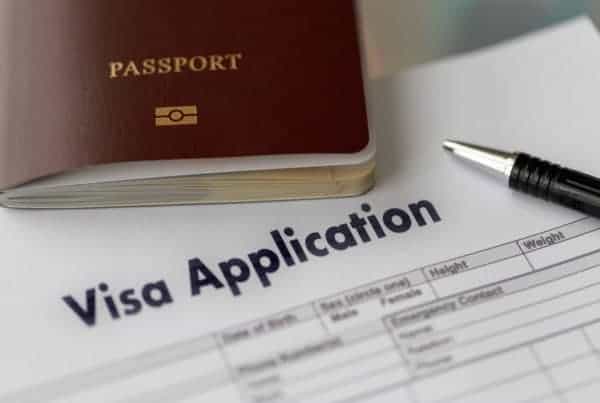World development indicators show that China is well on its way to become the best economy in the world. It is currently in the number two position for purchasing power. Still, with government incentives, a large population, and the fastest-growing economy in the world, it will not be long before it takes over the number one spot.
Due to the attractive world development indicators and other factors, many businesses are flocking to China to register and incorporate their companies. Below, we discuss the procedures to accomplish this objective and the important information you need.
Decide if You Need a Company in China
Before undertaking the complex objective of registering and incorporating a company in China, it is important to determine whether this is actually necessary.
PEO and EOR Solution
PEO and EOR solutions make it easier than ever for a company to have a working staff in China without the additional expense and complexity involved with establishing a separate legal entity.
Additionally, different structures that work within your existing framework may be a more affordable and easier option. For example, an umbrella company can host a team in China for service-oriented business. This option is often ideal for small businesses that want to place a sales and marketing team in China or have an import-export manager get started before launching the entire business.
Umbrella companies can accomplish the following:
- Handle work visa procedures for foreign employees
- Recruit employees
- Rent office space for workers
- Rent warehouses to store products
- Handle payroll and administer benefits
- Handle tax compliance
Representative Office
Another option is to establish a representative office. A representative office is not technically a legal entity. It is an office that is established to conduct limited activity that does not generate income. It is often used for market research or to provide support through marketing or sourcing.
It cannot receive money from clients and must be funded by a company abroad. However, if you are not wishing to engage in income-generating activity, this option is much more affordable and simpler.
Understand the Different Types of Companies in China
If you have determined that you do need to set up a separate legal entity in China, it is important to understand the different options available to you, along with any limitations of these options and how to set up the particular entity. This information is detailed below.
Wholly Foreign Owned Enterprise (WFOE)
A Wholly Foreign Owned Enterprise (WFOE) is 100% owned by foreign investors. This is the most common business structure for foreign businesses. Most of the time, this company is a limited liability company (LLC). In this scheme, the liability of each partner is limited to the capital investment that they have made into the business.
This type of company can participate in manufacturing, invest in other companies, trade products, services and raw materials internationally and engage in wholesale and retail trade with customers in China.
A WFOE can generate income in all activities that are not restricted to foreign investors.
The minimum registered capital varies by region with some areas as low as USD $15,000 while others are $140,000. A portion of this capital must be paid up before the registration of the business and the remainder deposited in the company’s Chinese bank account within two years. It is important to have enough registered capital to support the business during its early stages to avoid the time delay and expense of injecting foreign funds into the Chinese bank account.
To establish a WFOE, you must appoint a company secretary who is a resident of China and open a foreign bank account in China.
The China National Development and Reform Commission must first approve the company’s business plan. Then, an application for incorporation must be made with the PRC Ministry of Commerce. Once registration is approved, foreign exchange registration must be completed with the State Administration of Foreign Exchange. Additionally, a feasibility study must be submitted to the State Administration of Industry and Commerce that highlights the business’ plan for the first year and its budget for this time period.
You must also register for corporate income tax, VAT and social security. Each quarter, you must file corporate income returns and provisional payments. You must submit social security contributions on a monthly basis. You will also have to report to the Tax Administration Department on a monthly, quarterly and annual basis.
Joint Venture
A joint venture is typically established by one foreign investor and a domestic company. This option is usually used when a foreign company wishes to operate in a restricted sector – such as legal consulting services, the automobile industry, or tobacco products — and may be the only plausible option in this scenario.
To establish a joint venture, you must appoint a resident company secretary, open a corporate bank account in China and obtain approval for all of the registrations required by a WFOE. Capital requirements are usually higher for joint ventures than WFOEs.
Free Zone Company
Another option is to establish a WFOE and then register it in one of China’s special economic zones (SEZ). This option is usually used by export-oriented companies.
Registering a business in a free zone often provides a number of incentives. The requirements to establish a business in one of these zones vary by zone and may require hiring a minimum number of people, registering minimum capital or making technology transfers. Free zones include the Special Economic Zones, Economic and Technological Development Zones (ETDZ), the High-Tech Industrial Development Zones (HIDZ), Free Trade Zones (FTZ) or the Export Processing Zones (EPZ).
Steps to Register a Company in China
The steps to register your company in China will vary by the area where you are registering it, your industry and the type of entity you are forming. Many of the procedures to register and incorporate a WFOE or joint venture are detailed below.
As you can see below, the process to register and incorporate a business in China is complex. You may want to work with a local expert who can guide you through this process and complete the necessary steps for you.
1. Choose Your Business Scope
You must determine the business scope in which you plan to operate your business. This will help you determine if it is encouraged, restricted or prohibited, which will inform your next steps.
The Chinese government encourages foreign investment and makes financial incentives for certain restrictions. Encouraged sectors often involve environmental protection innovations, export or the development of some of the poorest regions in China.
However, it also restricts foreign investment in some industries and requires a Chinese company to be the majority owner. It also prohibits foreign investment in certain sectors, such as those that are considered politically sensitive or damaging to the country.
It is important to select a business scope that strikes the perfect balance by accurately describing your business operations and allowing you to grow in the future. Having a business scope that is considered too vast can cause delays and a denial of your permit to open your business.
A stated business scope that is too limited or specific can cause your business to be shut down by the government if you operate outside the scope on your declaration.
2. Prepare Your Registration and Incorporation Documents
You will need to prepare and submit a variety of documents in order to register and incorporate your business. It may be necessary to complete the following steps:
- Check if your Chinese business name is already in use by participating in the pre-approval process with the Administration of Industry and Commerce in the city where you plan to open your company.
- Make a list of the controlling partners of your business and have it pre-approved.
- Define the managerial structure, the names of the board directors, general manager and legal representative and copy their passports.
- Obtain a legal address for your business.
- Prepare your Articles of Association.
- Specify the positions you are going to hire or provide information about your existing employees.
- Make plans for the registered capital and the total investment.
- Prepare a feasibility study, business plan and budget.
- Prepare other required documents, according to the scope of your business and sector.
You will then need to submit these documents and other evidence to the responsible authorities to obtain your approval certificate.
3. Obtain Your Business License
You will have 30 days to register with the AIC and apply for your business license after receiving your approval certificate. Plan to submit the following:
- Application
- Articles of Association
- Approval certificate
- The pre-approved name of your company in Chinese
- Business licenses of company investors
- List of the names of your directors, general manager, supervisor and legal representative
- A letter of recommendation from the bank where you have a corporate bank account
You may be required to submit additional documents based on the region where you establish your business.
4. Deposit Registered Capital
Most business entities in China are required to have a local corporate bank account. You will also most likely be required to deposit the registered capital in this account. You can only use a bank registered with the State Administration of Foreign Exchange for these purposes. You can pay the difference between the total investment and registered capital at a later date.
The amount of registered capital depends on the region where you are opening your business, the scope of your business, your industry and the type of entity you are establishing.
5. Complete All Necessary Procedures
You may be required to complete additional procedures. Talk to your consultant to see which of these requirements you will have to fulfill before launching your business:
- Register your company’s basic operating and financial information, CFO verification, tax category registration and invoice application with the Tax Bureau and set up your tax machine
- Receive approval from the Public Security Bureau for company chops
- Register with the Customs Office if you will import or export goods
- Register with the State Administration of Foreign Exchange
- Hire an accountant
- Draft a staff handbook for your Chinese staff
- Prepare compliant employment agreements for your staff
- Assist employees with the visa process
Get Help from Sky Executive
If you want to register and incorporate a company in the best economy in the world, contact the local experts at Sky Executive. We can explain how we can assist you with the company setup process and other aspects of your expansion to the Chinese market.















